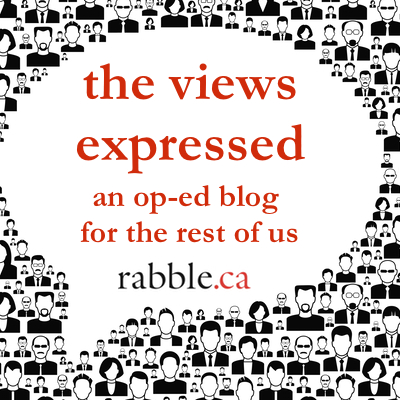Like this article? rabble is reader-supported journalism. Chip in to keep stories like these coming.
In this election, Tom Mulcair’s NDP is proposing a two-point increase in corporate taxes. It’s an important element of the NDP plan because it funds the NDP’s aggressive, $13.2-billion transit, infrastructure and manufacturing support strategy.
Liberal leader Justin Trudeau has also promised an infrastructure plan. His plan includes $13.6 billion in capital infrastructure over the next four years — about the same as the NDP plan.
The NDP has provided Canadians with a costed platform. All the revenues and expenses are listed. Each promise is funded. And a key element of securing that funding is the $3.7 billion each year that will come from a corporate tax increase. The NDP plan was checked and verified by several well-known Canadian economists.
Because of the ongoing funding provided by a two-point increase in corporate taxes, the NDP can provide reliable funding as long as the new tax rate is in place.
Trudeau, on the other hand, hasn’t show Canadians his numbers — leaving serious questions.
Trudeau says his infrastructure support will continue for 10 years. But he also vows to balance the budget after three years. So it’s far from clear how Trudeau plans to continue his infrastructure plan when he has no deficits or additional revenue to fund them.
Because Mulcair’s plan is based on an increase in government revenues, his plan is secured by ongoing funding, not just for three years.
But Trudeau’s much-vaunted plan has an even more serious problem — not that it’s unfunded after three years, but that it’s not funded at all.
While Trudeau has been refusing to add up his spending promises, others have. The NDP’s Peggy Nash recently charged that the Liberals’ promises exceed their funding by $6 billion — that’s $6 billion over their $10 billion deficit.
We all understand the charge and counter-charge of politics. It’s part of the way parties probe and challenge each other. In the current, 24-hour news cycle, inaccurate charges against a party get shut down within in hours. They barely get reported.
But the Liberals didn’t respond. They dodged. Asked during the debates, Trudeau simply said he has confidence in Canada. Take that to the bank!
Trudeau’s inability — or unwillingness — to say how his promises will be funded suggests the Liberals are playing pixie dust politics, promising anything to anyone with no plan to actually do it.
It’s not like the Liberals haven’t deceived voters before. Liberals didn’t repeal the GST. Cut unemployment benefits and took $54 billion from the EI fund. Never did child care despite 13 years in office. Cut health and social funding by 24 per cent. Made the biggest cuts in history to the CBC. And those are just some of the biggies.
And the broken promises continue under Trudeau. He broke his promise on open nominations, minimum wage and child care. He promised a costed platform, which he still hasn’t given. He said he was against Harper’s Bill C-51, but then voted for it.
Overnight, he miraculously switched from saying balanced budgets were a core Liberal value to saying deficits are a core Liberal value.
And now he’s doing it again. Trudeau throws his pixie dust as if Canadians could use the stuff to buy the groceries or fill the gas tank. He’s deceiving people, making expensive promises he knows he hasn’t got the money to fulfill.
It’s the old Lucy and Charlie Brown football trick. Once again, Liberals ask Canadians to take a running start while they promise that — this time — they really will hold the ball. Except it never works out that way.
As they rightfully should, the NDP will put pressure on Trudeau to show his math. Nothing will be more revealing than Trudeau’s response. Or lack of one.
Tom Parkin is a frequent NDP media commentator.



